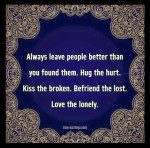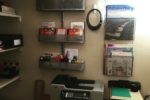Reach Out & Touch Someone: The Value of eMentoring
How can I better help my students understand why they should keep playing and studying through high school and beyond and also help them develop realistic expectations about the role of piano playing in their future lives and careers? A recent blog post by Heather Wolper-Gawron on Edutopia, The Power of eMentorship in Student Literacy: An Interview With Nina Zolt, got me thinking again about just that.
I have always been impressed by how early our perceptions of being an educator, or a doctor, or a baseball star, or a coal miner, or a pianist are set. By our mid teens, we have pretty well fixed our perceptions about careers and these perceptions are very hard to change. In order for our students (some who will later be parents) to have realistic expectations, they need to experience actual people working and living—and they need to experience it before they go to college. The more facets of a career experienced early, the wider the perceptions gained.
I make it a point to talk to my pre-college and college students about exactly what my career entails. I bring in guests (local pianists, composers, adult avocational pianists, graduate students, etc.) to talk with and play for them during studio classes so that they get some first hand looks at various ways that people keep music in their lives. I make sure that there is a social hour of some kind during workshops so that students can talk with our clinicians and presenters one on one (with planned ahead questions of course.)
Certainly, this and other blogs, as well as social networks such as Twitter and Facebook, can and do function as eMentoring when used well. But, Nina? She went bigger. Her social learning network, ePals, connects more than 700,000 educators and 25 million students and parents from around the world. Here are some quotes from Nina on the value of eMentoring:
- Students are more motivated to learn when it’s real. eMentors help students realize that adults like to learn in their everyday lives, and they model intrinsic motivation.
- Caring adults provide individualized attention and encouragement. There is growing recognition that students, especially those in low-income environments, need more caring adults in their lives for encouragement, guidance, and as role models.
- Corresponding with adults helps students learn more about the world beyond their neighborhood. Having an eMentor provides a safe window into what adult careers and life are really like. Also, students get to correspond with successful people in professions they might otherwise not get to experience during their whole life.
How can we bring the eMentoring concept into the private or group studio?
- If you have a studio website or blog, reach out to those you know who might be able to write a guest post about the role of piano in their lives, why music is important to them, what their early piano learning experiences were like, etc. Students (and parents) can have discussions safely through comments which you moderate.
- When you upload an audio file of a student composition to SoundCloud, people can give feedback through timed comments. Duh you say? OK, almost every site in the universe allows people to comment, but, the beauty of this is you can place feedback at exactly the right moment rather than in a list at the bottom of the page. Students can get help and encouragement from mentors and studiomates pinpointed at specific times during the audio.
- Create a YouTube Channel and upload performances for discussion. You can share performances by yourself, a mentor, or a student for feedback. If you want to develop a listening project, there are many fine artistic performances available to add to your channel.
- PDFs of student compositions or public domain scores for listening projects can be emailed or accessed through a service like Dropbox. Feedback can be given by mentors and colleagues via a document also saved in the Dropbox or a series of emails. When emailing discussions, I find it helpful to enable quoting the text of entire message and use reply to all to prevent orphan comments which go unnoticed.
- With ForScore for iPad, you, a student, or mentor can actually write or type directly on scores and share them through a service like Dropbox or by email. This is useful for student compositions or listening projects. A great feature of ForScore is the ability to bind an audio performance to a score so you can follow a score as you listen and never lose your place.
- Use Skype to connect a single student or your entire studio to a mentor via phone or video. The amount that can be accomplished over Skype is really amazing. You can play and/or discuss nearly everything that you could in person. I would advise that the teacher or a parent be present during individual work with a mentor.
- Try creating a Wiki at Wikispaces to collaborate on studio projects. Documents and images can be uploaded and discussions and comments can be enabled. You can create your Wiki for free and students and mentors can join and contribute to the Wiki for free too.
Yes, it takes some organization and a few non-negotiable rules to pull any of this off. You will need to make “help” sheets with detailed instructions on how to use each tool. Mentors must be chosen carefully. Everybody needs to know what is appropriate and the teacher must moderate all discussion carefully. Also, everyone does not have the same technology or the same tech skills. Sometimes you have to use the lowest common technological denominator to allow everyone to talk to each other and work together.
The beauty of eMentoring is that everybody does not have to be gathered together in one location at one time for a rich learning experience to occur. There are no travel expenses. A mentor’s valuable time is respected. Students’ and parents’ valuable time is respected. The teacher’s valuable time is respected. Everybody wins and their musical lives better for it.
photo © 2005 Laura Henderson (via: Wylio)




Yes, I hope the old days of teachers (and students) feeling guilty for not going down the concert pianist path are over. I want my students to find ways to keep music in their lives and not just as audience members either.
Gail,
I love, love, love this post! So many great ideas in one place. Thank you for that! And I agree that it’s crucial that we give young musicians a broader vision of what a musical life can look like. It’s importan to give them examples to inspire their imaginations, to get them thinking in new directions.
Thank you!
Erica